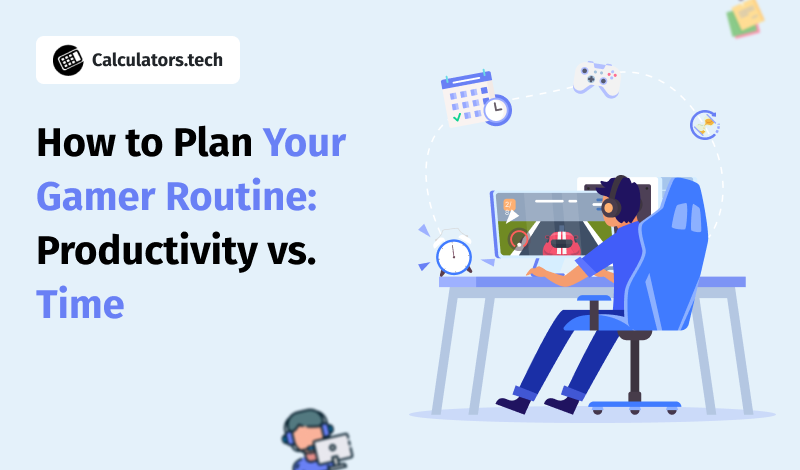In a world where time is a precious resource, balancing gaming with everyday responsibilities has become a real challenge. Whether you're a casual player or a hardcore competitor, planning your gaming routine can make a big difference in both your in-game performance and your real-life productivity.
Understand Your Gaming Profile
Before you start optimizing your time, it's essential to understand what type of gamer you are. Do you play competitive titles like Counter-Strike 2 or League of Legends that require daily training? Or are you more into immersive single-player experiences like Elden Ring or Baldur’s Gate 3?
Identifying your goals — fun, improvement, completion — is the first step in crafting an effective schedule.
Use Time-Blocking Techniques
One of the most effective productivity hacks is time-blocking. Allocate fixed time slots for each activity in your evening. Here’s a sample schedule:
- 7pm to 8pm — Study or work
- 8pm to 8:30pm — Dinner
- 8:30pm to 10pm — Gaming
- 10pm to 10:30pm — Wind down and sleep preparation
By assigning clear time windows, you train your brain to anticipate what's next, and avoid falling into the “just one more match” trap that can easily stretch into the early hours.
Track Your Playtime
Knowing how much you play is the first step to staying in control. Most gaming platforms — like Steam, Xbox, or PlayStation — track your total playtime. You can also use apps like RescueTime or manually log your hours if you play across multiple devices.
But it's not just about numbers. Just like in physical training, more time doesn’t always mean better results or greater enjoyment. Playing 4 hours straight might sound good or productive — especially if you're aiming for competitive improvement — but after a certain point, mental fatigue kicks in and performance drops.
Discipline is just as important as dedication. Whether you're grinding ranked matches or exploring open worlds, knowing when to stop is part of staying sharp and enjoying more of your time. Track your gaming hours not just to limit it, but to use it better.
Set Goals and Gamify Your Time
You already love games, so use game logic to organize your day. Set real-life "quests" like:
- “No gaming until I finish my study session.”
- “Only play ranked matches after my gym session.”
- “Beat a new level only after completing a work task.”
And just like in games, you can also add weekly rewards: If you’re able to follow your schedule precisely, treat yourself to something, whether it’s a new game, an in-game skin, or a full free day to just play. Think of it as your real-world achievement unlocked.
Use a Gaming-Time Calculator
Yes, they exist! An online gaming calculator or a simple spreadsheet can help you determine how many hours you can afford to game each week without falling behind on your priorities. List your available free time, subtract fixed commitments, and you'll have a clear view of your gaming window. These calculators can easily be found with a quick Google search.
Final Thoughts
Gaming is a passion, and like any passion, it thrives when it’s structured. With a bit of planning and the right mindset, you can enjoy your favorite games guilt-free while keeping your real-life goals on track. In the end, a balanced routine lets you earn your victories, in-game and out.
